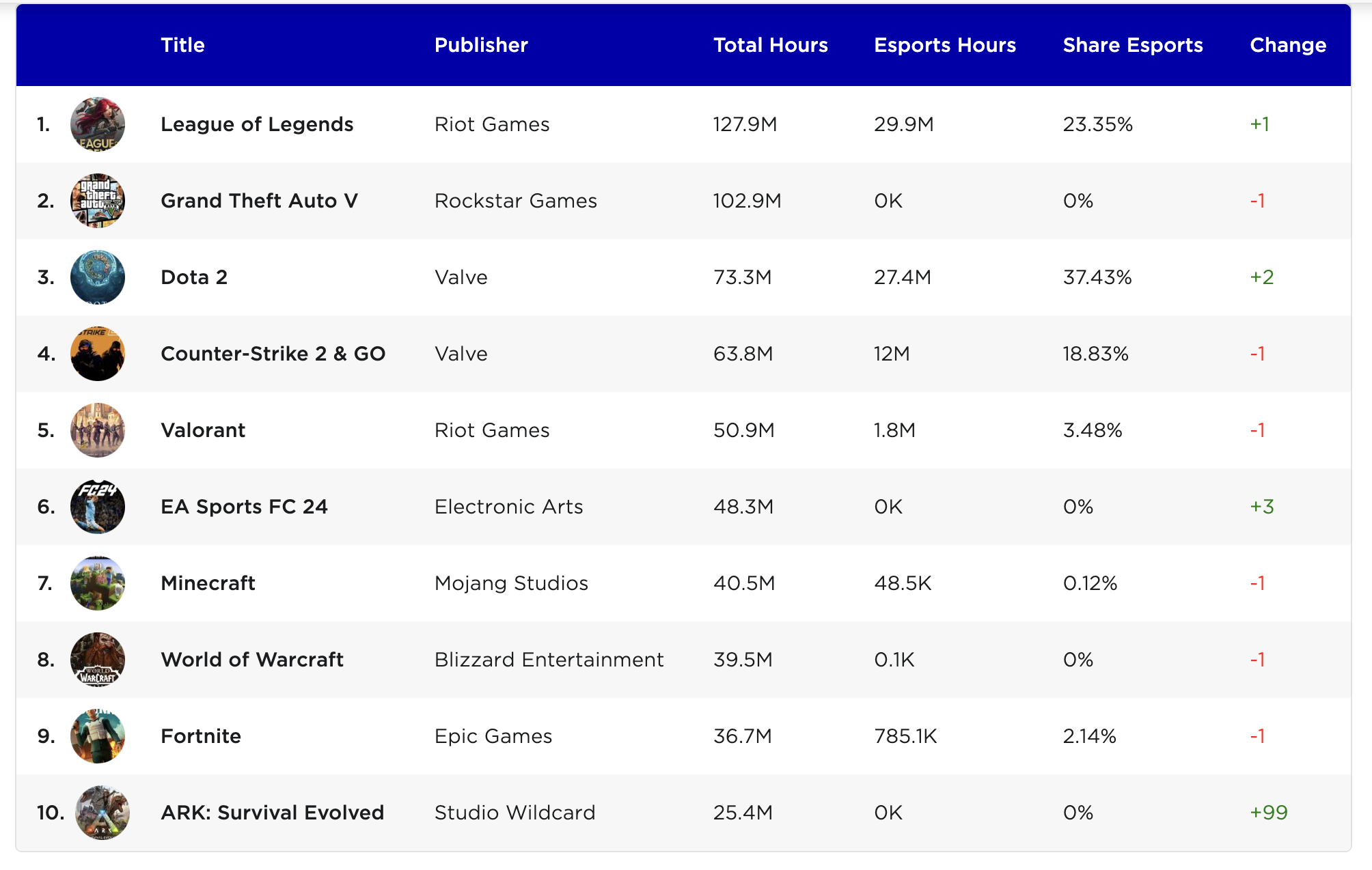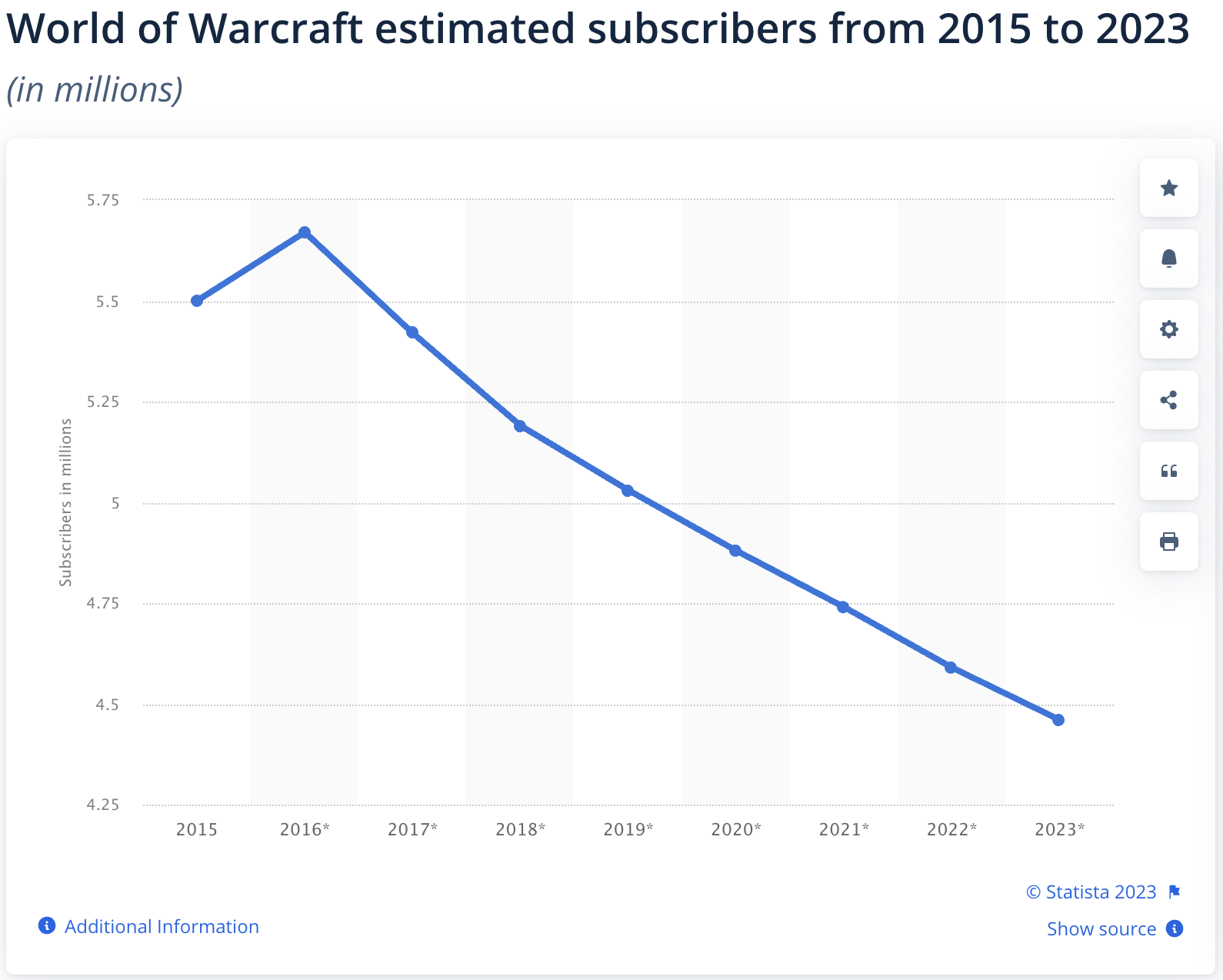What Happened to MMOs Part II
Over the last few weeks, we’ve been putting out feelers for the types of content you would all like to see from us and got a resounding YES when it comes to sharing what we’ve learned about video games, the music industry, wider entertainment trends, our predictions for the future, and plans to reshape the entertainment industry to support all creatives.
If you missed part one of this blog series on the history of video games and MMOs and want to learn about the:
technology that made video games possible
early video games and online behaviours that paved the way for MMOs
first adventurers into virtual worlds and what these worlds looked like
business models that positioned gaming to be the entertainment industry’s biggest market
… you can check out the first blog post in the series here!
Part II: The Rise of MMOs
Continuing on from part one, the success of Ultima Online brought developer interest in the MMO genre to an all time high. Around the year 2000 Sony, Microsoft, Ubisoft, Square Enix invested in their own MMO titles.
These games, like Ultima Online, focused on grind (task completion to level up) and challenging battles which encouraged players to collaborate and share knowledge to progress. In this vein, Sony’s EverQuest was released in 1999 and quickly surpassed Ultima Online in popularity.
💡 Just as the MMO genre was being defined, it began to depart from its original form as the genre was popularised and big studios released titles under the MMO tag. These new games were a departure from user generated stories and narrative driven worlds, transitioning to primarily battle oriented online game play. Perhaps in the early days of MMOs, the genre was based more on the idea of books and bringing story worlds to life. No one really knew what they were doing (the players or developers), which made it an exciting moment in the history of gaming. Every person who ventured into an early MMO was immediately without question a player and a story maker simultaneously.
While the MMO genre started to look more like multiplayer battle adventure games, a few titles focused on narrative in a unique way.
Asheron’s Call in1999 and Matrix Online in 2005 enabled developers to embody NPCs to influence the storyline, and focused on player generated narratives. In the Matrix Online, developers were even paid to embody NPCs and act out roles. This novel idea had a dedicated fan base, however the game shut down only 4 years after its release. With numerous bugs, the technical complexity of the concept, and a change in developers during the project, the initial concept released in beta saw little growth and was subsequently shut down with just 500 active players. It would be another 7 years for this type of game play to re-emerge, in player (rather than publisher) released experiences such as Grand Theft Auto Roleplay and Red Dead Redemption Role Role (Red M).
💡 NPCs are non-player characters controlled by an AI.
💡 Red M was recently acquired by Rockstar Games. It’s an indication that immersive game play where players act out roles in games is going to be mainstream in the not so distant future. Additionally, technology is at a tipping point where this type of gameplay is feasible from an infrastructure and cost perspective.
Source NewZoo: August 2023, the top 10 titles viewed on Twitch all games, with Grand Theft Auto V and Valorant both racked up over 100 million hours viewed in one month alone. Games and game communities are a crucial part of online culture, currently largely unpenetrated by the music industry.
A few more titles worth mentioning here are Runescape (2001) which was playable via a web browser (no download required), enabling many people to play MMOs for the first time, and Dark Ages of Camelot (2001), which was the first MMO focused entirely on other player killing. In 2004, Halo 2 normalised online gaming with Xbox live, where players could easily get online to play campaigns with others all over the world.
💡When Halo 4 was released in 2004, Mark Zuckerberg’s “TheFacebook" website was created at Harvard University. Four years later in 2008, Facebook surpassed Myspace as the most-visited social media website. Pre-social media like Facebook, games were the way for like-minded people to connect with each other online to play and have fun. It was a way for people to chat and play before email, mobile phones, and social media. Could this have leant to early MMO games focusing largely on story, narrative and communication? Later, did social media fulfil our bandwidth for social communication, so game developers focused more on accessibility for mass adoption(easy shooting or killing games)?
In 2008, Facebook cracked the 100M user milestone.
Then in the same year, Word of Warcraft was released. It reached up to a whopping 12 million subscribers, whereas most other MMOs at the time had less than 1M subscribers!!
Word of WarCraft got 12 million subscribers because:
reliable internet was more common
Blizzard (the publisher) was known for quality online games
It was FUN!
game play focused on independent grind and levelling up (single player), making the title more accessible
there were no death penalties (other player killing now normalized)
developers created in-game signs to guide people (less downtime between milestones, therefore more instant reward feedback loop- although arguably this made the experoence less satisfactory too)
it ran an smoothly on average PCs
character building had depth for hardcore gamers, but the game could also be played by more casual gamers focusing on levelling up rather than story
it found a sweet spot between difficulty and accessibility
the game had higher quality graphics overall
smaller maps kept players closer together
the world was seamless, with no loading scenes across 40 zones
World of Warcraft, while still recognizable as an MMO, brought many changes to the genre. It focused more on single player progression and introduced experience points which could be turned into capabilities and unlocked content, enabling progression outside of traditional storytelling and collaborative gameplay mechanisms. As a result, players progressed through the game’s content much quicker.
💡 Progression is the way a player makes progress in a game. As you progress, you get more capabilities, and greater access to content. Often there are bigger milestones along the way, which players look forward to. Higher levels are then even more satisfactory because players have “earned it”. Unique to MMOs is that they are not designed to be finished. In Word of Warcraft however, the game was progressively developed for more casual players. This broadened the player base, however the new demographic was more intent on levelling up and completing milestones rapidly rather than investing hundreds of hours in the narrative driven story side of the experience. In response, the game’s developers ramped up the instant feedback reward loop, however at the same time this arguably made the game less rewarding, as each win took less effort, and therefore the sense of achievement was deflated.
💡 Despite its enormous player base, gamers were still frequently described as nerds or video game addicts. This stigma is rooted in the early days of video games when the only people who had access to computers and played video games were students in computer labs at universities. In contrast, over 3 billion people play games today and the stigma is fading.
As people flocked online to play WoW, many found an unparalleled sense of community and friendship, which is perhaps the game's greatest achievement. WoW was about the journey, not the destination. All future MMOs tried to emulate this, but the outlook for MMOs was about to change as gamers consumed content like hordes of locusts. So players reached the zenith, then what next?
A clue about what comes next for WoW, but what about MMO games as a genre, does it survive? Or, what does it become?
OUR PREDICTIONS FOR THE FUTURE OF MMOS
Players have loved player driven narrative games since the first text based games in the 70s. The next generation of MMOs will be in virtual worlds where people play out fantasy roles, but also roles much more similar to those we see in real life, like actors, filmmakers, writers etc, with real monetization and career growth as well as a new business model that rewards creatives, enabling digital natives to flourish with digital careers that have real world results.
Immersive game play where players act out roles in games is going to be mainstream in the not so distant future.
We will depart from social media as we know it today and transition further into 3D virtual worlds which will be the new social media channels. We will still make calls (although more frequently holographic in nature) and do this more often than text based communication.
In the future, being a gamer will not be associated with nerdism. People are growing up as digital natives who have spent nearly their entire lives surrounded by computers, digital devices and the world of social media and games.
YOUR PREDICTIONS FOR THE FUTURE OF MMOS
Send us your predictions and we’ll add them to our list (with attribution and a link to your social channel of choice). Message us on social media, or email us at info(at)ristband.co.
Want to know what happens next? Stay tuned for next week’s blog post on The Era of the Next Big Thing
Questions or comments? Can't wait to hear what you think we've got right, and what might be drastically different!! Let us know on social media:



